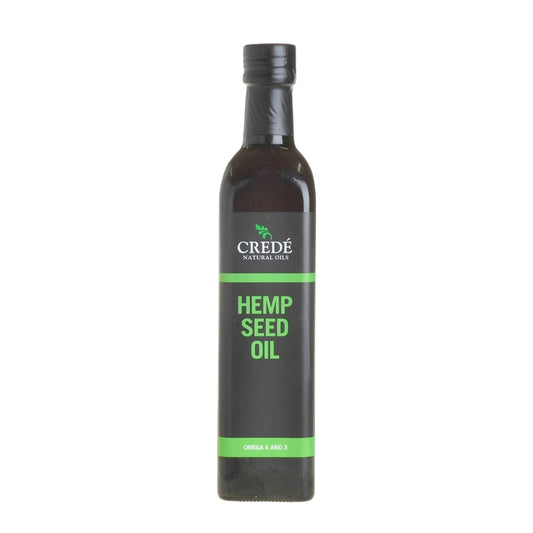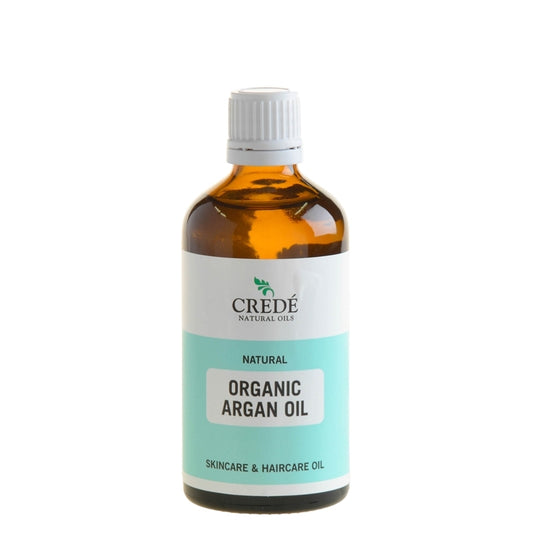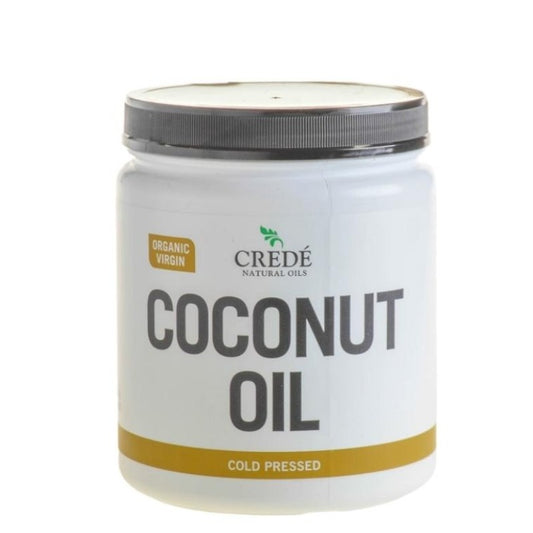
Natural Oils: A Replacement for Moisturiser?
Cayla MandeanHave you ever felt overwhelmed by the amount of products in your skincare or haircare routine? I don't know about you but the idea of replacing my moisturiser with natural oils sounds like just what I need to simplify my beauty routine and embrace natural living.
According to our latest Cosmetic Trends Report (if you haven't read it yet, check it out here), minimalist and organic skincare and haircare routines are gaining serious momentum. This trend is driven by people looking to reduce product overload and embrace clean, simple, effective natural ingredients that nurture their skin and hair without harmful additives.
Natural oils like argan, jojoba, and castor oil are becoming staples in beauty routines, but are they effective for everyone and how do they stack up against traditional moisturisers?
What Do Moisturisers Do?
The skin can be treated with stay-on products, such as ointments, creams, lotions, and gels, all of these can be considered a moisturiser.
To understand whether oils can replace moisturisers, it's important to know what moisturisers are designed to do. Moisturisers typically:
- Hydrate: Deliver water to the skin and help maintain its moisture balance.
- Seal: Lock in hydration and prevent water loss through the skin barrier.
- Nourish: Provide essential ingredients like vitamins, peptides, or ceramides that strengthen the skin.
Moisturisers provide the above-mentioned functional skin benefits; however, moisturisers also function as vehicles to deliver ingredients to the skin. These ingredients may be vitamins, botanical antioxidants, peptides, skin-brightening agents, botanical anti-inflammatories, or exfoliants.
Traditional moisturisers are often formulated with a combination of humectants (like vegetable glycerine or hyaluronic acid), emollients (carrier oils, butters or unique ingredients such as squalane), and occlusives (beeswax, candelilla wax substitute, avocado oil and almond oil) to achieve these functions.
Oils primarily serve as occlusives and emollients but lack humectants, which are vital for hydration in some cases.
What is The Role of Natural Oils?
Natural oils aka carrier oils, such as argan oil, jojoba oil, rosehip oil, coconut oil, and castor oil contain fat-soluble vitamins, minerals and antioxidants, among many other beneficial compounds. Each oil is unique so you can really tailor your desired benefits by choosing appropriate oils. Here's a quick look at popular oils and their benefits:
- Argan Oil: often called "liquid gold," this luxurious oil delivers deep hydration, reduces signs of aging like fine lines and uneven skin tone and suits most skin types-including oily and acne-prone-thanks to its lightweight, easily absorbed formula. It also helps to condition and repair damaged hair.
- Jojoba Oil: lightweight, non-greasy and deeply hydrates skin and hair without leaving an oily residue. It regulates sebum production, protects against oxidative stress, and suits all skin types, making it a versatile and nourishing choice. Because its composition is similar to the skin's natural sebum, it is often said to be ideal for oily or acne-prone skin.
- Rosehip Oil: Supports skin regeneration and addresses discolouration. Its anti-inflammatory properties help heal scars, while antioxidants protect against environmental damage. Plus, it's a versatile natural remedy for dry hair, skin, and nails.
- Coconut Oil: It's rich in fatty acids that help restore moisture, leaving the skin soft and the hair shiny. However, it can be comedogenic, meaning it may clog pores for those with oily or acne-prone skin. A great alternative to consider is Babassu Oil. It offers similar nourishing benefits without the risk of pore congestion. It's lightweight, non-greasy, and perfect for both hair and skin. You can read more about it by clicking here.
- Castor Oil: Deeply hydrates the skin and promotes hair growth, making it a popular choice for both skin and hair care. It's especially effective for dry or irritated skin, offering soothing relief as it also has anti-inflammatory properties. It also has skin-tightening benefits as it may promote collagen and elastin production. Regular use can help diminish the appearance of fine lines and wrinkles.
Can Oils Replace Moisturisers?
The short answer is yes, BUT it depends on your skin type and environment. Here are a few key points to consider:
1. Hydration
Oils are not humectants, meaning they don't attract water to the skin. If your skin is dehydrated (lacking water), applying oil alone may not address the root issue. However, pairing an oil with a hydrating serum (containing ingredients like (hyaluronic acid) can provide a complete solution.
2. Skin Type Matters
- Dry Skin: Oils can be a fantastic addition to a routine but may not replace a rich, humectant-filled cream.
- Oily or Acne-Prone Skin: Lightweight oils like squalane or jojoba are less likely to clog pores and can replace moisturisers in some cases.
- Sensitive Skin: Some oils, like tamanu or pomegranate, can soothe irritation. However, others may trigger sensitivity, so patch-testing with all oils, no matter your skin type is crucial.
3. Climate Counts
In humid environments, oils may be sufficient for locking in hydration and moisturising the skin. In arid climates, a combination of humectants and oils (or a traditional moisturiser) is often more effective.
If you're asking, what moisturiser should I use? Click the links to discover how your skincare routine can be influenced by the season, whether it's the dry, cold winter or try making this light moisturiser.
It is always best to consider what works best for you and adjust your routine accordingly. Remember, we are all unique, so what may work for another may not work for you.
So, should you swap your moisturiser for a natural oil? The answer lies in your skin's story. Listen to it, and it'll guide you to what works best! Also consider a holistic approach to skin health-factor in your diet, lifestyle, and environmental influences when making skincare choices.











